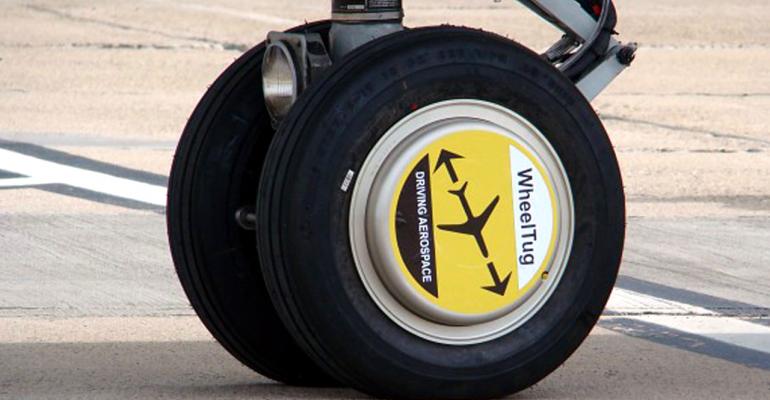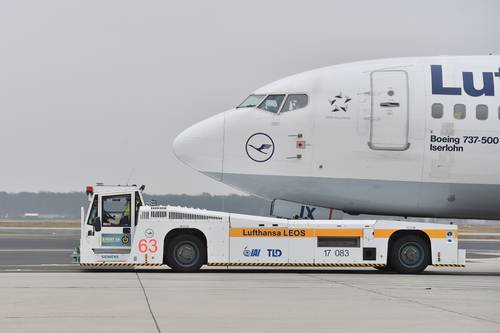
Bristol-based aerospace and marine engineering specialist Stirling Dynamics has been awarded a contract to deliver an electrical system for a powered nose-wheel for Boeing’s 737NG (new generation) family of single-aisle aircraft. The contract is from WheelTug, a company based in Portland, Oregon, which has been developing the system for over a decade, and this year began to seek certification from regulatory bodies in Europe and the US to deploy it on aircraft in commercial service.
Stirling claims it is the UK’s leading independent specialist in aircraft landing gear. “Our engineering team will draw on the company’s core capabilities in reverse engineering, wheel analysis, landing gear analysis, safety analysis and structural stress analysis,” in order to help WheelTug in its efforts to achieve certification, the company said in a statement.
WheelTug is one of several electric nose-wheel systems in development. The first system to market, the Israeli-developed TaxiBot, is an electric vehicle that can hook up to forward landing gear, but the logic behind WheelTug is that by incorporating the system into the aircraft itself, delays caused by waiting for a separate system to become available at the airport can be avoided, although there is a trade-off in increasing aircraft weight. Electric taxiing systems are seen as being a method for airlines to greatly reduce their fuel costs (and emissions), as jet engines are very inefficient on the ground. TaxiBot is currently only being used by Lufthansa at Frankfurt Airport.

WheelTug is based on a high-torque electric motor built into the hub of the nose-wheel and powered by the aircraft’s auxiliary power unit — the generator that powers all the existing on-board electrical systems.
It is working with 22 airlines, including KLM, Alitalia, Continmental, IcelandAir and El-Al. It is hoped to enter service in 2019, with Canadian airline Transat as the envisaged first commercial user.
“We are proud to work on this innovative technology with the WheelTug team, this new contract is another step forward in seeing this innovative technology reaching the marketplace,” commented Stirling’s Aerospace business manager, Bandula Pathinayake.




Red Bull makes hydrogen fuel cell play with AVL
Formula 1 is an anachronistic anomaly where its only cutting edge is in engine development. The rules prohibit any real innovation and there would be...